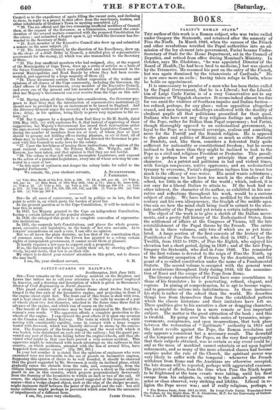Sm—In all cases of controversy, as well in politics as
in law, the first point to settle is, on which party the burden of proof lies. In the present question as to the Cape Constitution, it will be material to bear this in mind.
In 1847, her Majesty granted to the Cape an independent Constitution, having a certain infusion of the popular element. In 1850, she enlarged this grant to a complete concesilon of representa- tive institutions.
In 1851, she suspends both Constitutions, and places the whole govern- ment, executive and legislative, in the hands of her own servants. As to lawyers' conundrums on such a case, I can offer no opinion. But we all know the plain doctrine, no less that of the constitution than of common sense, that when the Crown has granted to a colony certain rights of independent government, it cannot recall them at pleasure. It hardly requires a law-case to support such a proposition.
If so, the Government will have to justify their act, by showing affirma- tively, beyond doubt, that law is on their side.
My object is to direct your readers' attention to this point, not to discuss the case itself.


























 Previous page
Previous page